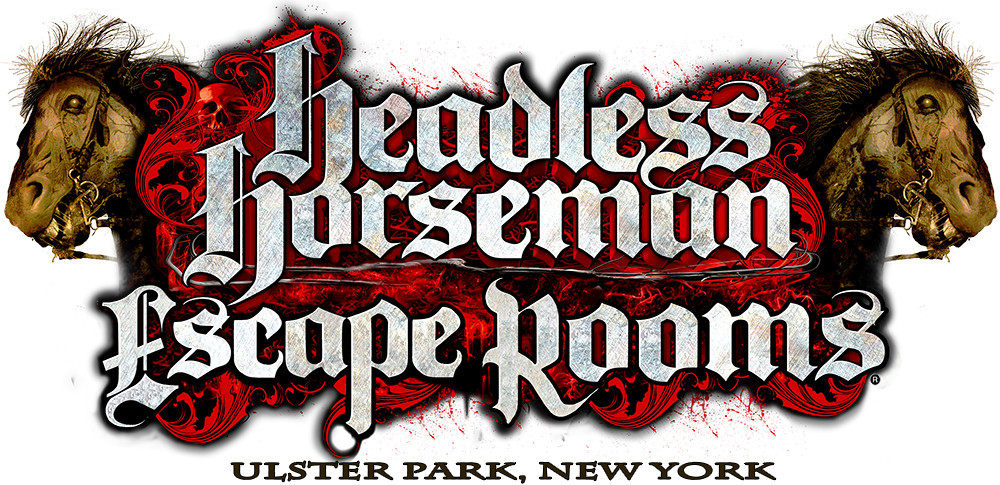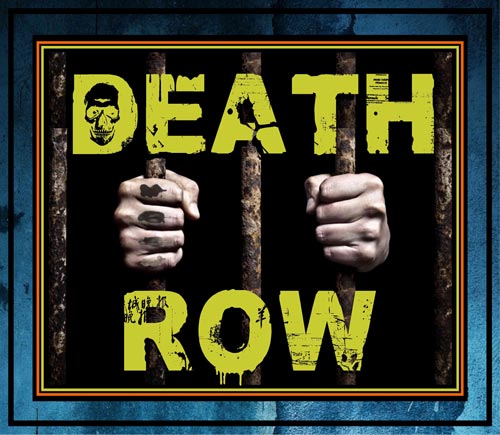Do you ever wonder if those thrilling escape room adventures in Ulster, NY, are just about fun and excitement, or do they hold hidden benefits? Well, it turns out that a well-designed escape room experience can do more than just entertain you. Engaging in these immersive challenges can boost your cognitive abilities and make you feel like a genius! Let's explore how these enigmatic escapades can enhance your mental prowess in various ways.
1. Logic
At the heart of every successful escape room in Ulster, NY, lies a series of cleverly crafted puzzles and conundrums that require logical thinking to crack. In this artificial environment, your logical skills are put to the test. Frequent exposure to such challenges hones your ability to think critically and apply deductive reasoning, which are vital traits of a sharp mind.
Escape Room Activities that Develop Logic
1. Cipher and Code-Breaking Challenges
Cipher and code-breaking challenges are quintessential to thrilling escape room challenges that demand logical thinking and problem-solving skills. Participants encounter encrypted messages, mysterious symbols, and hidden codes that must be deciphered to unlock vital clues and progress in the game. Engaging in these challenges requires careful analysis, pattern recognition, and logical deductions to crack the code successfully.
Each step taken towards unraveling the message reinforces the player's ability to think critically, identify patterns, and apply logical reasoning. As participants tackle more complex ciphers, they enhance their capacity to approach problems systematically and creatively, honing their logical prowess.
2. Logic Puzzles
Escape room games often feature an array of logic puzzles, such as Sudoku, logic grids, and mathematical challenges. These puzzles demand precise, logical reasoning and strategic thinking for the correct solution. Players must analyze the provided information, eliminate possibilities, and deduce the most plausible answers based on rules or clues. Solving logic puzzles in escape room challenges enhances participants' logical thinking, encouraging them to think critically and logically assess different scenarios. Applying systematic reasoning and logic is beneficial during the escape room experience and carries over to real-life situations where complex problem-solving is required.
3. Lock and Key Challenges
Lock and key challenges are a staple in escape room challenges, where participants must find and utilize keys to unlock padlocks, drawers, and doors. These challenges involve logical thinking as players search for hidden clues and strategically determine which locks to open first. Participants engage in deduction and logical decision-making by linking clues to specific locks. Such activities boost their ability to analyze information, make connections, and think rationally under pressure, all of which contribute to developing their logical acumen.
4. Riddles and Rhetorical Challenges
Riddles and rhetorical challenges in thrilling escape room challenges encourage participants to think creatively and laterally. These mind-bending puzzles often require unconventional problem-solving approaches, testing players' ability to think outside the box. Participants must draw on their logical reasoning while exploring multiple perspectives to unlock the puzzle's meaning. As you attempt to decipher complex riddles, you enhance your analytical thinking and expand your problem-solving toolkit. The ability to think beyond conventional solutions can be advantageous in escape room challenges and daily life when faced with unconventional problems.
5. Interconnected Puzzles
Interconnected puzzles are prevalent in escape room challenges, where solving one puzzle provides clues or answers for others. These puzzles challenge players to think holistically and make connections between seemingly unrelated elements. Engaging in interconnected puzzles improves the player's ability to see the bigger picture, identify dependencies, and break down complex problems into manageable parts. The experience fosters strategic thinking, logical sequencing, and understanding how various pieces fit together to form a cohesive solution.
2. Memory
Remembering crucial details is a fundamental aspect of conquering an escape room. Throughout the adventure, players encounter various information and clues that must be retained for future use. Exercising your memory to recall and connect these vital pieces can improve your short-term memory capacity and overall cognitive retention skills.
Escape Room Activities that Exercise Memory
1. Audio Clues and Sound Patterns
In an escape room, you may encounter captivating audio clues or sound patterns that play a significant role in advancing through the game. These auditory challenges require listening attentively and memorizing specific sequences of musical notes, sound effects, or spoken instructions. To progress successfully, you must accurately reproduce these patterns when needed.
Engaging in such audio-based activities exercises your auditory memory, a skill crucial for remembering and recalling the information you have heard. Strengthening your auditory memory enhances your performance in escape room challenges. It is valuable in daily situations where attentive listening and remembering instructions are essential.
2. Sequential Puzzles
Sequential puzzles form a vital part of an escape room experience, demanding your ability to recall and follow a specific sequence of actions or events. For instance, you might need to remember the order in which you discovered various clues or the steps taken to unlock a series of padlocks leading to your escape. Engaging in these sequential challenges sharpens your short-term memory capacity, enabling you to retain and accurately reproduce sequences.
Developing better short-term memory skills enhances your cognitive retention, allowing you to connect different pieces of information, ultimately helping you become a more adept problem solver within escape room challenges and in everyday scenarios.
3. Memory Pathway
In some escape rooms, participants may traverse intricate pathways or mazes where hidden clues lie along the way. Your ability to remember the locations and details of these clues becomes critical in unraveling the larger mystery. As you venture through the memory pathway, you must be keenly aware of the layout and specific locations where you found each clue. Engaging in memory pathway activities exercises your spatial memory, enabling you to recall precise details of the escape room's layout. This heightened spatial memory not only aids in puzzle-solving but also improves your orientation and navigation skills in the real world.
3. Perception
Perception refers to the ability to interpret and make sense of sensory information gathered from the environment. It involves using your senses, such as sight, hearing, touch, taste, and smell, to understand the world around you. Perception is a crucial cognitive skill in an escape room that can significantly impact your success in solving puzzles and completing challenges.
Escape Room Activities that Develop Your Perception Skills
1. Hidden Object Challenges
Escape room games often incorporate hidden object challenges, where participants must keenly observe their surroundings to discover concealed clues or items. Engaging in these challenges encourages you to pay close attention to your environment, honing your visual perception skills. As you train your eyes to spot well-hidden objects, you become more adept at noticing subtle details, a valuable skill that can extend to various real-life scenarios.
2. Visual Memory Challenges
Some escape room puzzles involve briefly showing visual cues or patterns you must recall accurately later. These challenges exercise your visual memory, allowing you to retain and reproduce visual information better. Improving your visual memory can have practical applications beyond escape room games, such as remembering faces, locations, or details encountered in everyday life.
3. Sensory Integration Puzzles
Escape room challenges may present puzzles that require integrating information from multiple senses. For example, you might need to combine visual and auditory clues to solve a particular challenge. Engaging in sensory integration puzzles enhances your ability to process and make sense of complex sensory information, fostering a more comprehensive understanding of your surroundings.
5. Distorted Images
Distorted image puzzles present players with scrambled or manipulated pictures that must be unscrambled or realigned to reveal the correct pattern or message. These challenges test your visual perception and spatial reasoning, as you must mentally reconstruct the original image from its distorted form. Engaging in these puzzles requires assessing the relationship between different parts of the image and visualizing how they fit together cohesively. This exercise strengthens your ability to perceive spatial relationships accurately, an essential skill for navigation, assembling objects, and understanding complex visual information.
6. Spot the Difference
Spot-the-difference challenges in escape room activities involve comparing two nearly identical images to identify subtle discrepancies between them. Players must observe the images with precision and attention to detail, noting any slight variations in shape, color, or arrangement. This activity enhances your visual discrimination abilities, allowing you to detect even the slightest differences between similar objects or scenes. Strengthening your ability to spot differences can benefit everyday life, from identifying environmental changes to analyzing data and making informed decisions.
7. Symmetry and Asymmetry Puzzles
Puzzles featuring symmetrical or asymmetrical patterns require players to identify and understand the visual balance or imbalance within the given design. Symmetrical puzzles present mirror images, where each side is a reflection of the other, while asymmetrical puzzles lack this balance. Engaging in these puzzles challenges your ability to perceive and appreciate visual symmetry and asymmetry, improving your understanding of visual aesthetics. Recognizing and interpreting symmetry can also aid in recognizing patterns and understanding order and harmony in the environment.
4. Dexterity
Certain escape room challenges demand more than just mental prowess; they require physical dexterity and accuracy. From unlocking intricate padlocks to manipulating objects precisely, you'll need steady hands and hand-eye coordination. These tasks can translate into improved fine motor skills and overall physical coordination.
Escape Room Activities that Improve Dexterity
1. Lock Manipulation
In an escape room in Ulster, NY, you'll often encounter padlocks with intricate mechanisms that stand between you and the clues needed to progress. Successfully manipulating these locks requires steady hands, finger dexterity, and precise movements. As you delicately turn the lock's dials or press its buttons, you engage your fine motor skills, enhancing your ability to handle small objects with finesse. The repeated practice of lock manipulation within escape room challenges refines your hand-eye coordination and tactile sensitivity. These newfound dexterity skills can be useful in various real-life scenarios, such as handling delicate items or performing tasks demanding steady fingers and movements.
2. Mechanical Puzzles
Escape room activities frequently present mechanical puzzles that require physical dexterity and hand-eye coordination to interact with gears, levers, buttons, and other mechanisms effectively. As you assemble objects or maneuver mechanical elements to unlock hidden compartments or trigger mechanisms, you enhance your fine motor skills and spatial awareness. Engaging in these challenges strengthens the connection between your hands and eyes, allowing you to navigate physical spaces better and interact with intricate objects in everyday life.
3. Physical Obstacles
Some escape room activities incorporate physical obstacles that players must navigate to progress in the game. These challenges may include climbing over barriers, crawling through confined spaces, or maneuvering through narrow passages, demanding physical agility and coordination. As you overcome these obstacles, you improve your balance, body control, and overall physical dexterity. The physical challenges within escape room mechanics can translate into improved motor skills and confidence in your ability to navigate various environments outside of the game.
4. Object Manipulation
Escape room puzzles may require handling and manipulating various objects, such as arranging items in a specific order or fitting puzzle pieces together. Engaging in these activities refines your hand-eye coordination as you carefully position and align objects to uncover hidden clues or reveal the next steps in the game. The ability to manipulate objects with precision can be beneficial in everyday life, whether you're organizing items, crafting, or engaging in DIY projects.
5. Precision Tasks
Certain escape room challenges involve delicate tasks that demand precise actions, such as threading a needle to open a hidden compartment or aligning intricate components to solve a puzzle. These precision tasks sharpen your fine motor skills and attention to detail. The ability to perform delicate actions accurately can be advantageous in various scenarios, including sewing, repairing small devices, or handling fragile items carefully.
6. Digital Puzzles
Escape room games often incorporate digital interfaces, touch screens, or interactive displays that players must navigate to gather information or unlock clues. Interacting with these digital elements improves your digital dexterity and proficiency in using touch-based interfaces. Navigating digital puzzles enhances your ability to interact with touchscreen devices and technological interfaces, increasingly valuable skills in today's digital world.
5. Time Mangement
The clock is ticking in an escape room, adding an element of urgency to the challenges. Players must strategize, prioritize tasks, and work effectively under pressure to beat the clock. Practicing time management in this setting can positively impact your productivity and efficiency in real-life situations.
Escape Room Activities that Improve Time Management
1. Race Against the Clock
In some escape room games, players may face a specific challenge or series of puzzles with an even more stringent time limit than usual. These scenarios push players to the limits of their time management abilities, requiring quick thinking and decisive actions to beat the clock. Engaging in race-against-the-clock challenges in escape room games sharpens your ability to manage time efficiently and make rapid decisions. These skills are valuable in meeting tight deadlines and handling time-sensitive tasks in everyday life.
2. Time Extensions and Rewards
In certain escape rooms, players may have the opportunity to earn time extensions or rewards by solving specific puzzles or achieving particular milestones. Effectively managing these time extensions requires strategic thinking and considering the best moment to use them for maximum impact. Engaging in escape rooms with time extensions and rewards encourages you to be mindful of time management strategies that can be applied in real-life situations where you may have opportunities to gain extra time or rewards through efficient work.
3. Team Against Team Mechanics
The pressure to race against each other induces a sense of urgency, pushing participants to make quick decisions, efficiently allocate tasks, and communicate effectively within their team. In this context, time management becomes crucial for staying focused, prioritizing tasks, and adapting strategies on the fly to gain an advantage over the opposing team. Engaging in team vs. team escape rooms hones time management skills, as participants must strategize, collaborate, and manage their time efficiently to secure victory within the time constraints. The experience gained from these challenges can be applied in real-life situations where effective time management is essential for meeting deadlines, achieving goals, and accomplishing tasks efficiently.
You Are Invited to the Most Thrilling Escape Room Adventure in Ulster, NY!
Next time you embark on an escape room in Ulster, NY, take pride knowing that the experience goes beyond mere entertainment. These well-designed challenges can help fine-tune your logical thinking, boost your memory and perception, improve aim and dexterity, enhance reading comprehension, sharpen your time management skills, and foster effective communication.
Get ready to embark on an unforgettable journey at the Headless Horseman Escape Room, where adventure, mystery, and excitement await! We take pride in being the best escape room in Ulster, NY, offering an immersive experience like no other.
Step into our meticulously crafted escape room at the Headless Horseman Escape Room, where the atmosphere is filled with anticipation and intrigue. Book your spot at the most thrilling escape room in Ulster, NY, now and get ready to embark on a journey that will test your skills, ignite your imagination, and leave you with an exhilarating sense of accomplishment.





